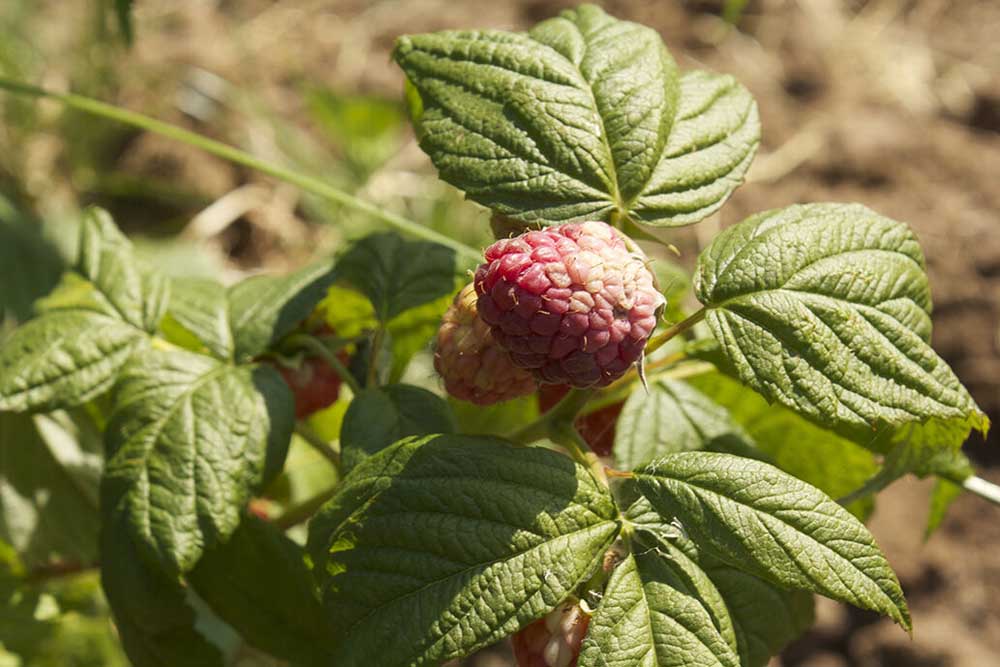Court rules in favor of Washington raspberry farmers
Published 5:15 pm Wednesday, September 7, 2022

- A Washington Appeals Court Sept. 6 reinstated a lawsuit filed by five red raspberry farmers against a pesticide manufacturer and a farmers cooperative.
A lawsuit filed by five Washington red raspberry farms was reinstated Sept. 6, giving them a chance to prove a herbicide killed berry plants and caused more than $2.5 million in lost production.
The Appeals Court Division I reversed a lower-court judge who summarily dismissed the lawsuit against pesticide maker Syngenta and a farmers cooperative that recommended the weed killer.
The three-judge panel ruled that the Federal Insecticide, Fungicide and Rodenticide Act does not pre-empt filing a claim against a pesticide in state court.
The court cited a U.S. Supreme Court decision, Bates v. Dow Agrosciences LLC, that found federally approved pesticide labels didn’t give chemical makers blanket immunity from suits based on state laws.
The court sent the suit back to Whatcom County Superior Court, where the farmers will have to prove their claims.
“I was pleased to see the ruling, obviously,” said the farmers’ attorney, Jeffrey Thigpen. “I think it’s fair to say the Bates decision in 2005 opened the gates for farmers to seek relief in state court.”
Syngenta and co-respondent CHS Inc. could petition the state Supreme Court to review the case. CHS merged with Whatcom Farmers Co-Op in 2015 and inherited the dispute.
A Syngenta spokesman said the company had no comment. CHS also declined to comment.
The five farms — Kissan Berry Farm, G&B Farm, JS Berry Farm, Ken Sidhu Farms and Maluka Farm — used the herbicide Callisto for the first time in 2012.
According to their lawsuit, an agronomist with Whatcom Farmers Co-Op recommended the herbicide.
The label said Callisto may be used on red raspberries. It also warned there can always be some damage to crops and that compensation was limited to the price of the product.
The farms applied Callisto and reported that berry plants died. Farms had to replant, losing production in 2012 and the following two years.
They sued Syngenta, CHS Inc. and Whatcom Farmers Co-Op. The suit reached the appeals court in June.
At a hearing, Thigpen argued that the label and agronomist’s recommendations were warranties under state law.
“It just didn’t work, and they said it would work, so I don’t know how they can get immunity,” he said.
Syngenta and CHS attorneys argued that the farmers were never told that the herbicide would not harm crops. The label warned otherwise, Syngenta attorney Don Willenburg said.
“There is no warranty that the product was quote, unquote ‘safe,’ or that it will not harm crops,” he said.
CHS attorney Ryan Vollans said there’s no evidence that the agronomist said Callisto will not harm plants.
“The farmers never alleged he said that. Frankly, of course, you never would say that because this is farming,” Vollans said.
In finding in favor of the farms, the appeals court leaned heavily on the Bates decision.
In that case, 29 Texas peanut farmers alleged that a pesticide manufactured by Dow damaged their crops. The farmers claimed a violation of a Texas consumer-protection law.
In a 7-2 decision, the U.S. Supreme Court ruled that while FIFRA prevents states from altering pesticide labels, it does not give pesticide manufacturers virtual immunity from damage claims in state courts.







